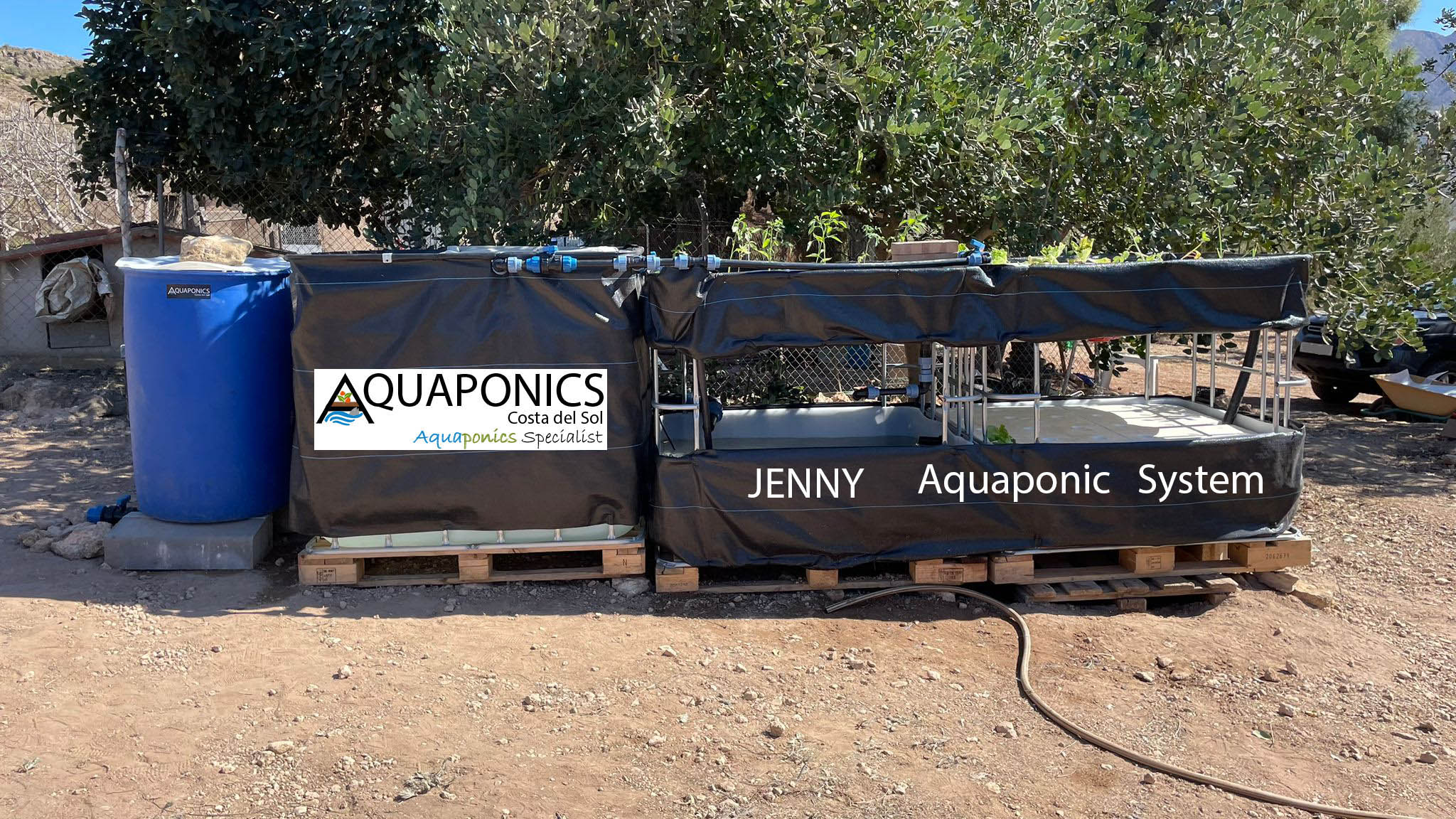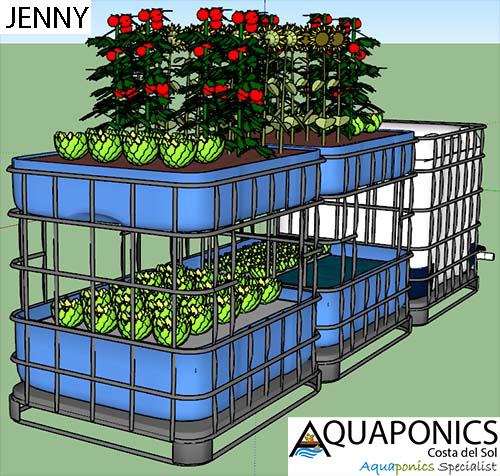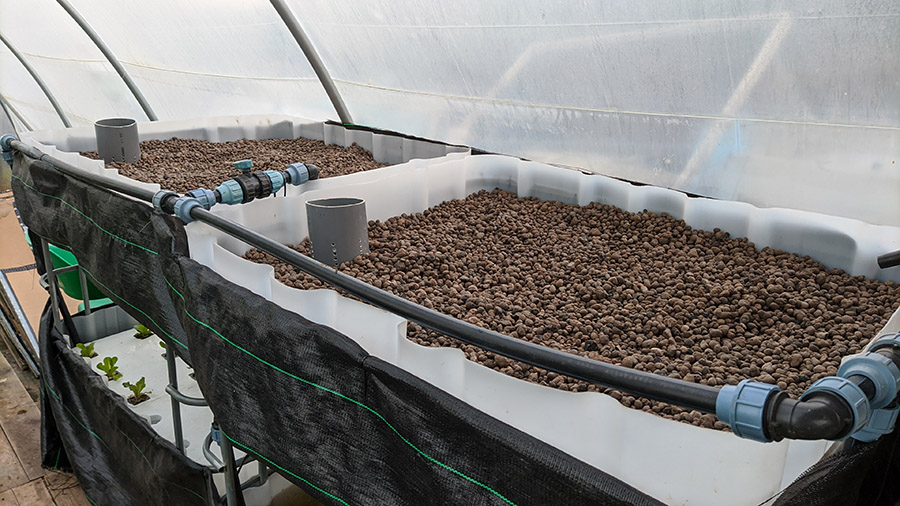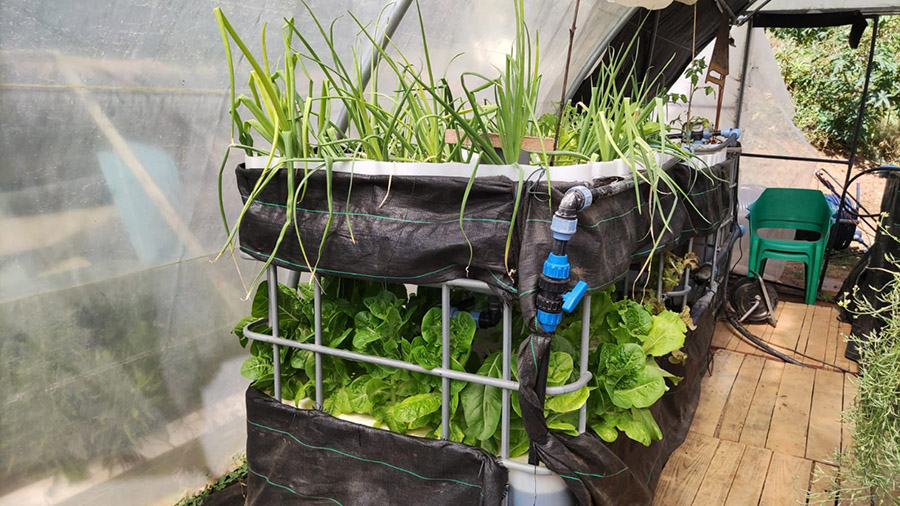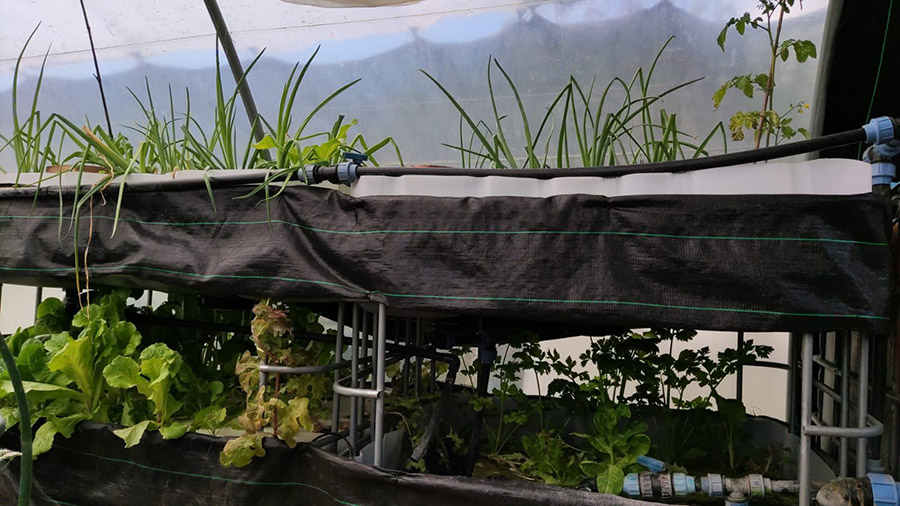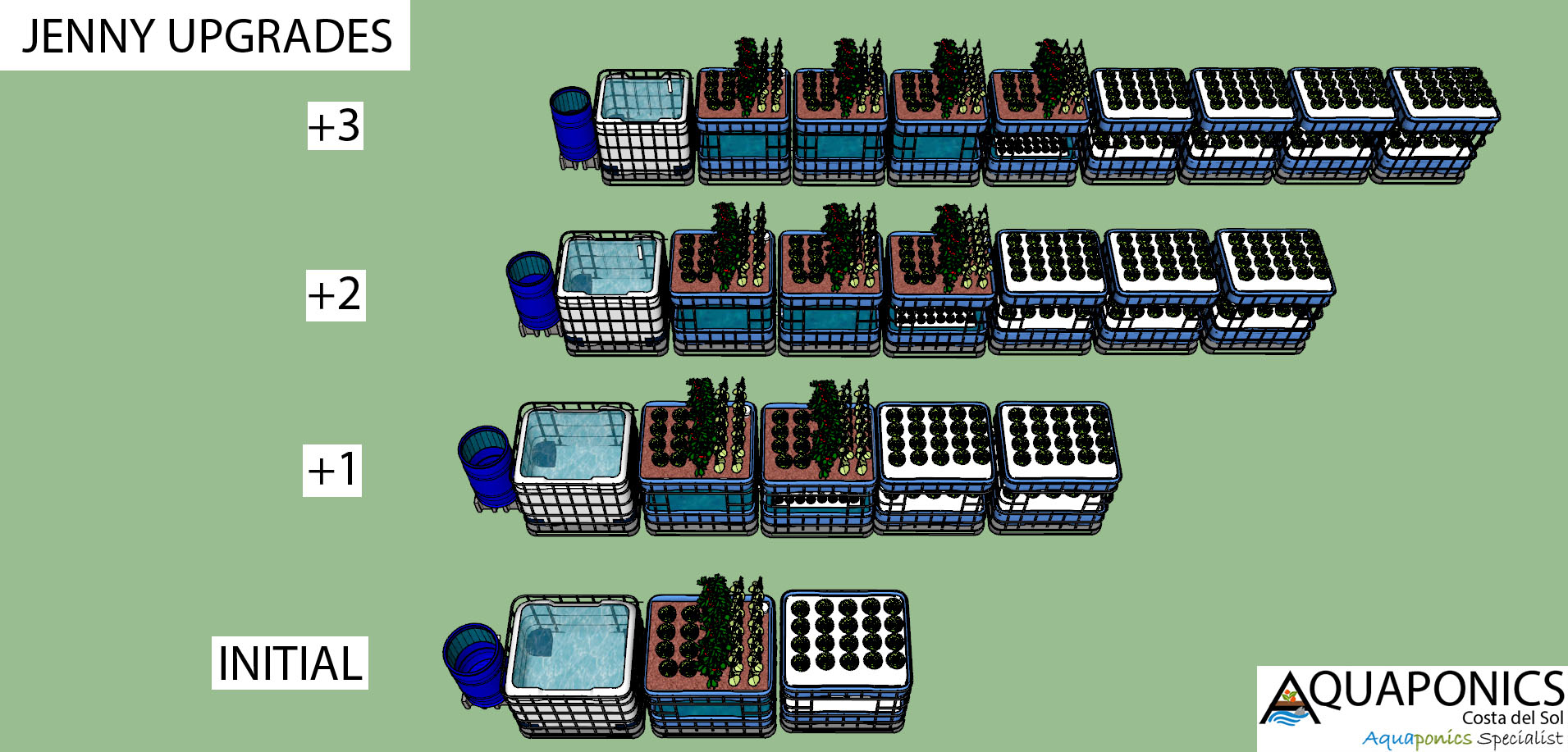
Great Design:
A Perfect Way to Learn, Use, Get Better & Teach Others
For
Purpose
Introduction to aquaponics, facilitates research, enables fish reproduction, and ideal start-up aquaponic system for self-consumption of produce with possibility to scale up.
Energy consumption : 100 watts/hour
Water Consumption : 2 ltrs/day
Grow Area : 3 sqm
Fish Density : 5 Kg
Our JENNY DD Aquaponic System, represents a compact-scale solution, with the flexibility to scale up to the JENNY + 3, four times its initial size. Originally intended for species reproduction in remote and challenging environments, JENNY has emerged as a remarkably versatile aquaponic system. It has demonstrated exceptional durability, resilience, and minimal upkeep requirements, making it an ideal choice for those seeking a reliable and low-maintenance solution.
We designed it to be scalable according to the user's needs. It can be installed anywhere, is portable, long-lasting, and constructed with materials readily available in any country. It doesn't require any permits, involves no chemical transfers to the water, and complies with all safety standards inherent to the materials used.
This system is a versatile solution with a wide range of applications. It's an ideal choice for research purposes, making it valuable for universities and schools. Additionally, it's perfect for small communities seeking sustainable food sources and individuals who are embarking on an aquaponic venture. Whether you want to gain a comprehensive understanding of the system and gradually scale up your production or introduce aquaponics to a community and use it for educational purposes in schools, this system offers a flexible and effective solution.
Features.
• Dimensions and weight
- Forehead x Side x High : 4,5 m x 1 m x 1,2 m
- Empty weight: 220 Kg
- Weight in use: 2.400 Kg
• Structure
- Tank: High-density and high molecular weight food-grade polyethylene.
- Frame: Double-layer galvanized steel tubes.
- Pallet: Galvanized steel.
• Characteristics
- Certifications: BAM Federal Institute for Materials Research and Testing
- Maximum content density: 1,9 (water)
- Maximum Hydraulic Pressure: 100 Kpa
